Search
Did you mean: Picts?
Search Results
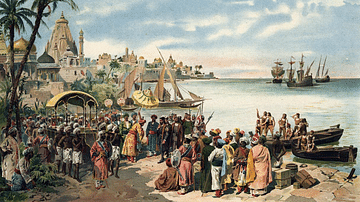
Article
The Portuguese Conquest of India
Throughout the 15th century, the Portuguese Crown yearned for a piece of the Far Eastern spice trade. For centuries this trade had been dominated by the Venetians who obtained pepper, cloves, nutmeg, ginger and cinnamon from their Middle...

Definition
Portuguese Empire
The Portuguese Empire was established from the 15th century and eventually stretched from the Americas to Japan. Very often a string of coastal trading centres with defensive fortifications, there were larger territorial colonies like Brazil...
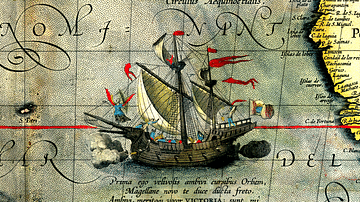
Definition
Ferdinand Magellan
Ferdinand Magellan, or Fernão de Magalhães (c. 1480-1521), was a Portuguese mariner whose expedition was the first to circumnavigate the globe in 1519-22 in the service of Spain. Magellan was killed on the voyage in what is today the Philippines...
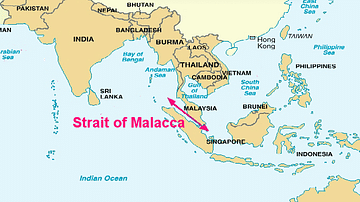
Definition
Portuguese Malacca
The Portuguese colonised Malacca (modern Melaka) on the southwest coast of the Malay peninsula from 1511 and kept it until 1641 when the Dutch took over. The port controlled the Malay Straits which lead from the Indian Ocean (the Andaman...

Article
Trade Goods of the East India Company
The English East India Company (EIC) was founded in 1600, and it came to control both trade and territories in India, as well as a trade monopoly with China. Goods the EIC traded included spices, cotton cloth, tea, and opium, all in such...

Article
European Discovery & Conquest of the Spice Islands
Clove, nutmeg, and mace are native to only a handful of tiny islands in the middle of the vast Indonesian archipelago – cloves on five Maluku Islands (the Moluccas) about 1250 km (778 mi) west of New Guinea, and nutmeg on the ten Banda Islands...
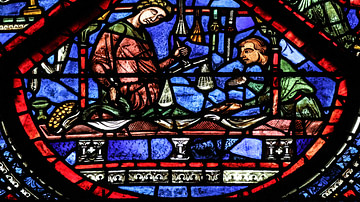
Article
Eyes on the East: Chronicles of the Indian Ocean Spice Trade
As the 15th century ended, Europeans were still mostly in the dark about the Eastern world. Early travelers like Marco Polo had given the West tidbits of information, but these accounts were too highly colored and fragmentary to provide a...
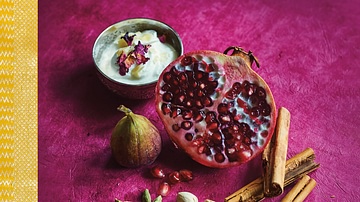
Interview
The World of Parsi Cooking: Interview with Niloufer Mavalvala
In this exclusive interview, Niloufer Mavalvala, author of The Art of Parsi Cooking: Reviving an Ancient Cuisine, speaks to James Blake Wiener of Ancient History Encyclopedia (AHE) once again about the joys of Parsi cuisine and her new title...
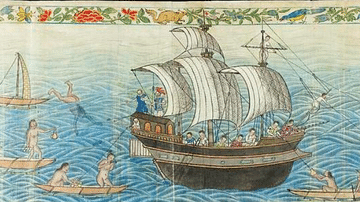
Definition
Manila Galleon
The Manila galleons were Spanish treasure ships which transported precious goods like silk, spices, and porcelain from Manila in the Philippines to Acapulco, Mexico, between 1565 and 1815. The Atlantic treasure fleets then shipped some of...
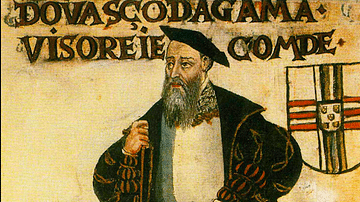
Definition
Vasco da Gama
Vasco da Gama (c. 1469-1524) was a Portuguese navigator who, in 1497-9, sailed around the Cape of Good Hope in southern Africa and arrived at Calicut (now Kozhikode) on the south-west coast of India. This was the first direct voyage from...